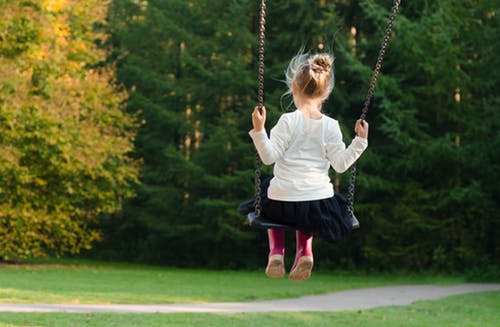In general, it is incredibly important to ensure that your children wear their sunscreen on a regular basis. Summer is an extremely fun time for your children and they are likely to be excited about playtime outside. It also provides them with additional avenues for exercise. However, it is critical for them to wear their sunscreen whenever they are outside in order to keep them safe and healthy. Here are some of the best tips for getting your kids to wear sunscreen during the hot summer months.
The Importance of Getting your Kids to Wear Sunscreen
The risk of skin cancer goes up exponentially with even just one bad sunburn. In addition, bad sunburns are extremely painful, which makes prevention key. You don’t want to see your child in pain and you especially don’t want to see them in pain that can damage their long term health. Regular sunscreen use is ultimately the best way to protect your children’s health. It is crucial to keep in mind that sunscreen should even be worn during the winter months. When sun reflects off of the snow, it can lead to sunburns and damage to the skin. Regular sunscreen use is crucial in preventing damage. Children need some level of exercise to remain happy and healthy. Having playtime outside can help to provide them with these benefits. However, it is crucial that they wear sunscreen while they are outside.
Consider a Reward System

A reward system can help to incentivize your children to wear sunscreen. You may want to consider allowing them to have an extra five minutes of playtime outside or providing an inexpensive toy in exchange for vigilant sunscreen use.
Make Sure they are Informed
Education can go a long way toward improving your children’s attitude towards sunscreen use. Ensure that they understand the incredible importance of sunscreen and protecting their skin from sun damage. This education can help to ensure that they understand why you are insisting on their sunscreen use.
Set a Good Example
Children tend to mimic what they see you do. When you regularly use sunscreen, they will be more inclined to also use sunscreen. It is important to model the behavior that you expect to see from your children. This same technique can often be applied to brushing your teeth.
Get the Right Kind of Sunscreen
First, you need to ensure that the sunscreen is adequate to protect your children’s skin. It can also be beneficial to ensure that you choose a kind of sunscreen that will be fun for them to use. For example, a sunscreen stick may be fun to give your children to “paint” on each other.
Give them Choices
Giving your child choices can help them feel more in control over the situation. The use of sunscreen isn’t optional if they want to play outside, but there are other aspects that you can let them decide. For example, you may want to let them choose where they put it on before leaving the house. This can help to provide them with more freedom and confidence in the sunscreen wearing process.
Accept their Input
Allowing your children to have some input can similarly improve their enthusiasm regarding wearing sunscreen. Let them give you input and their opinion regarding the various brands or types of sunscreen. If they like the sunscreen that they wear, they will be more inclined to wear the sunscreen whenever they go outside.
Make it a Habit
Developing good habits can go a long way toward improving your child’s health. When you ensure that they get in the habit of wearing sunscreen early on, they won’t know any other way when it comes to sunscreen use. This can ensure that they are more inclined to use their sunscreen.
Be Efficient
No child wants to spend a significant amount of time sitting around. They want to get out and play as quickly as possible. When you are efficient with your sunscreen application, they will be less resistant to wearing sunscreen. You may also want to consider applying sunscreen to their face while they are still in their car seat. This can help to prevent them from getting impatient and running away before you have finished. It is also important to keep in mind that sunscreen should be applied roughly 30 minutes prior to sun exposure to ensure that it is effective.
Use Clothing
Sunscreen isn’t the only way to protect the health of your children’s skin. You can also implement clothing in order to provide further protection. Long sleeves or hats can also help to keep their skin covered and protected. You may also want to consider allowing them to choose out the clothes that they use. This will ensure that they are much more enthusiastic about wearing the clothing. It can also be helpful to refer to this clothing as “gear” and explain that it is the same as wearing cleats for soccer or pads for football.
Make it Fun!
The more fun your child has while putting on sunscreen, the easier it will be to convince them to wear their sunscreen. There are many ways that you can do this. Consider making it a competition and time them to see who can apply their sunscreen the fastest. Another idea is to make it into a game, such as forming a “sunscreen train” to ensure everyone gets their sunscreen applied quickly and effectively. The more fun your children have with sunscreen, the easier it will be to keep their skin safe and protected.
The summertime is an incredibly important time to ensure that your children continue to wear sunscreen on a regular basis. This will go a long way toward protecting their skin and their health. Here at Corner Canyon Academy, we are passionate about the growth and development of your children. These various ideas and tips can help to ensure that your child is far more enthusiastic about the prospect of wearing sunscreen. To learn more about how to keep your children safe during the summer months, contact us at Corner Canyon Academy today!



